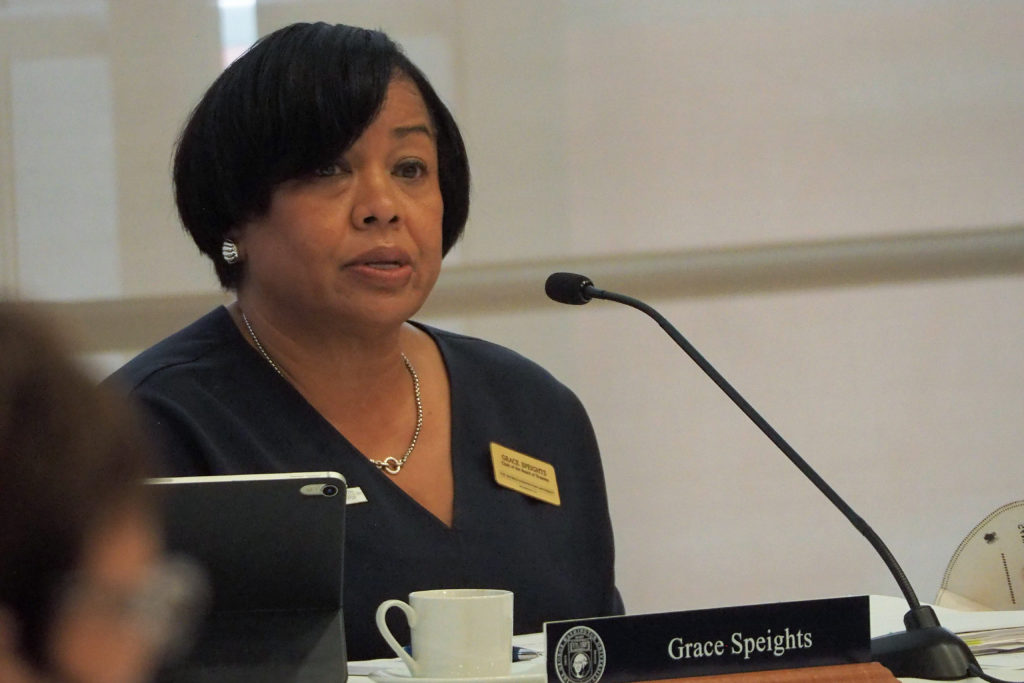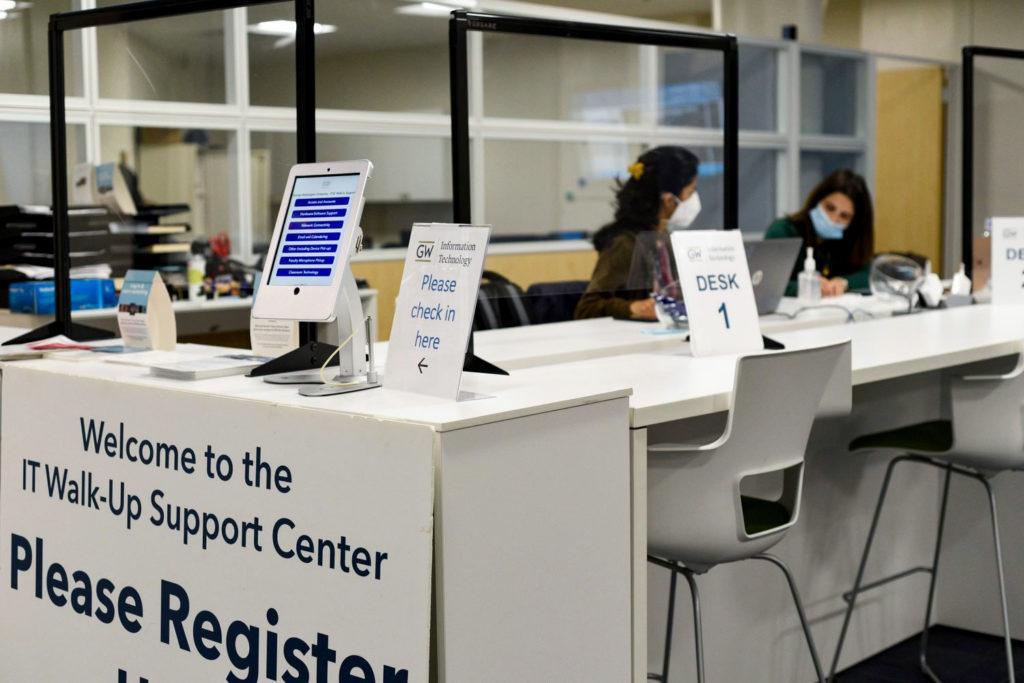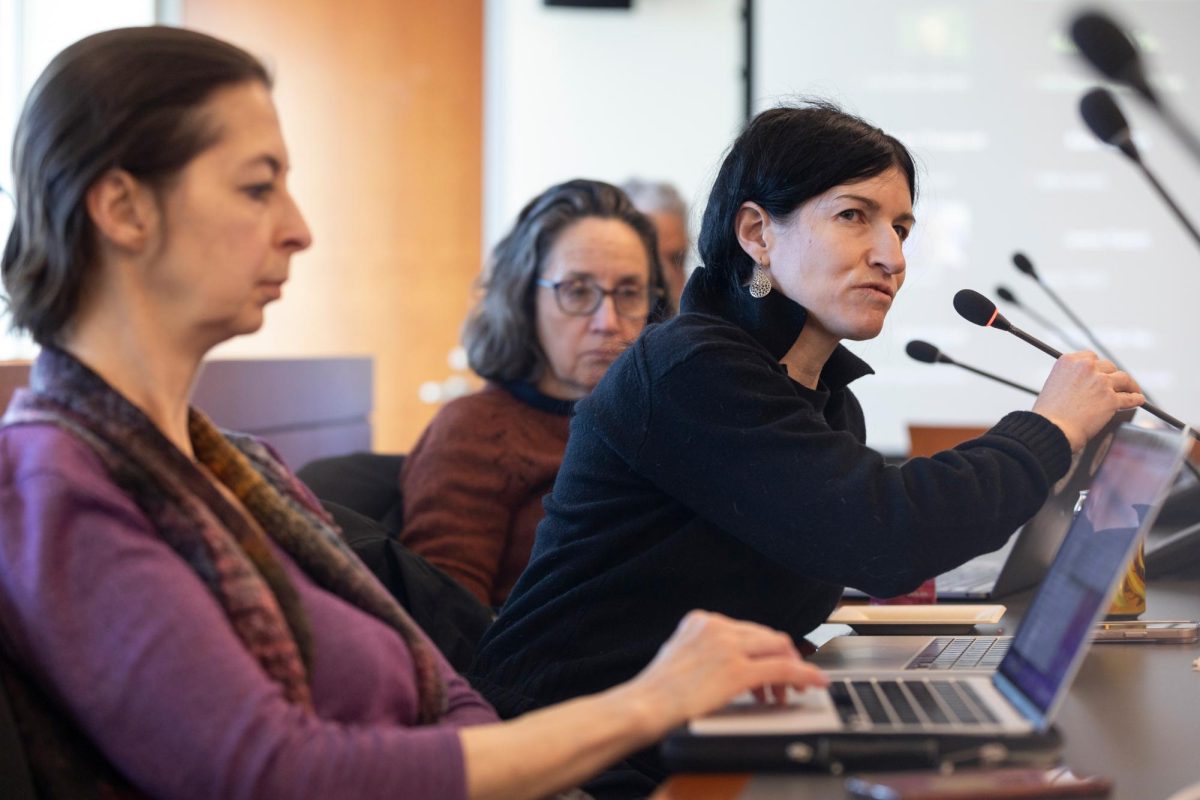After the University faced a $180 million budget shortfall last year because of lost revenue and unplanned expenditures during the COVID-19 pandemic, officials said the University broke even in its net operating income during Fiscal Year 2021.
Trustee Ellen Zane said at a Board of Trustees meeting Tuesday that GW’s pooled endowment, which does not include the University’s real estate holdings, grew by 30.8 percent during the past fiscal year, which began on July 1, 2020. Officials’ update about the finances they’ve recovered comes after they spent the last year implementing a set of budget mitigation efforts to limit the COVID-19 pandemic’s financial impact, including layoffs and a hiring freeze.
“The GW mitigation efforts this year, as we all know, were incredibly difficult to navigate, and the University, after all was said and done, managed to break even with a $120,000 loss on a net operating basis,” Zane said at the meeting. “So we really do owe a debt of gratitude.”
Board Chair Grace Speights said trustees voted during the Board’s executive session before the meeting to approve a resolution to recognize outgoing University President Thomas LeBlanc’s achievements and award him the status of president emeritus before he departs the University in January. Speights and other trustees have consistently maintained their public support for LeBlanc despite calls for his resignation and criticism from the GW community over officials’ handling of the COVID-19 pandemic.
“There is no question that these past several years have been among the most challenging circumstances this institution and the higher education sector as a whole can face,” Speights said. “We were fortunate to have your steady leadership throughout such tumultuous times.”
After LeBlanc announced in May that he would step down, Speights said in an email to faculty days later that she was concerned some professors had done more to “foment discord” than to contribute to civil dialogue. She said in the email that officials would conduct a review of the Faculty Code to determine the “appropriate avenues” for faculty input going forward.
At last month’s Faculty Senate meeting where she announced the Board’s selection of Interim President Mark Wrighton, Speights said the Board met with consultants from the Association of Governing Boards of Colleges and Universities and the American Association of University Professors this summer to discuss how GW should approach shared governance. She said officials would continue formalizing a plan through town hall meetings, a survey and a task force co-chaired by trustees, faculty and administrators before the three groups reach an “understanding” about shared governance in May.
Speights said in an interview this week that trustees would survey faculty, staff, administrators and Board members on the meaning of shared governance before participants attend a retreat to discuss the results.
She said trustees will then develop a task force with Faculty Senate, trustee and administrator representatives who will also attend a later retreat to develop recommendations for the Board on how to strengthen shared governance. Speights said officials plan to complete a set of recommendations for the Board’s approval by May.
“We’re on a fast track,” Speights said. “As you may recall from the announcement about President Wrighton, we really want to do this work, and obviously he will be a part of this once he gets here in January, but we want to get this signed so we can get ready for a new president.”
LeBlanc also announced at the meeting that Stacey DiLorenzo, the executive dean of external relations for the Milken Institute School of Public Health, will take over as interim vice president of marketing and communications. He said Sarah Baldassaro, who held the position since last summer, will serve as chief of staff at American University.
Officials previously hired Heather Swain, an official at Michigan State University, for the permanent marketing and communications position last August, but she rescinded her acceptance for the job following criticism from the GW community over her role in the Larry Nassar sexual abuse case.
Christine Brown-Quinn, the president of the GW Alumni Association, said at the meeting that nearly 25,000 alumni registered for nearly 125 virtual bicentennial celebration events since officials kicked off the celebration in February.
Brown-Quinn also said the total number of alumni who engaged with the University in some way through donations or virtual events increased to about 74,000 this year compared to last, approximately a 15 percent increase.
“We’re really pleased with this number, especially during the pandemic, and we look forward to again, leveraging that engagement,” she said.
Trustees also approved a series of updates to the University’s conflict of interest policy for the Board.
“The proposed policy changes improve the clarity, consistency and ease of administration of policy, including simplifying the language and terminology used and adding definitions to conflict of interest and the appearance of a conflict of interest,” Donna Hill Staton, the chair of the Board’s committee on governance and nominations said at the meeting.
Yankun Zhao contributed reporting.








